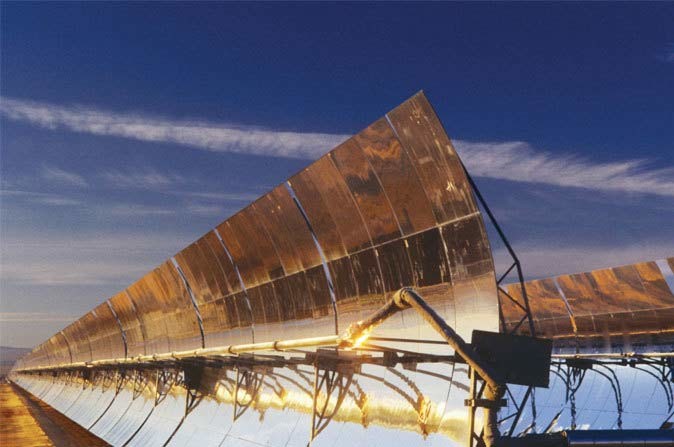Energy / Morocco
Energy transition
Morocco’s solution to the challenges of energy dependence is the object of worldwide interest. Details on this innovative formula.

Faced with the challenges of oil dependence, price volatility and the increasing scarcity of oil, the Kingdom has no choice but to develop an innovative energy strategy setting the milestones for the next 20 years. This challenge is all the more important given that the border with Algeria, which holds the world’s 11th largest hydrocarbon reserves, is closed. Future projections foresee a doubling of the country’s needs by 2020 and a threefold increase by 2030. This is hardly reassuring for a country that imports over 95% of its energy needs. The Kingdom, aware of the importance of meeting the challenge of sustainable development, has designed a diversified mix to ensure a lasting supply, contain energy spending and position itself as the regional leader in alternative resources. In figures, 1,000 Megawatts have already been launched under the wind power programme, with plans to reach 2,000 Megawatts by 2020. The solar plan, conducted by MASEN (Moroccan Agency for Solar Energy), has set itself the target of generating 2,000 Megawatts by 2020.
Moreover, Moroccan territorial waters are seen as having high oil prospection potential. Major U.S. and British oil companies and world consortiums are setting their sights on discoveries in Morocco. The country’s oil shale potential is ranked seventh in the world. That is why Amina Benkhadra, General Director, National Hydrocarbons and Mining Office (ONHYM) insists on «the need to diversify the search for hydrocarbons and give greater priority to shale oil”. Another great opportunity for Middle East operators lies in Nador West Med port. «The offshoring of oil stocking at Nador’s port area is an interesting prospect in terms of security and the proximity of the target markets», highlights Benkhadra.
Ouarzazate: A clean ecosystem
At the gateway to the Sahara, Ouarzazate solar complex is a unique project that has aroused worldwide interest. «Raising a $9 billion investment in a solar programme calls for unshakeable trust on the part of investors», argues Fouad Douiri, Minister of Energy, Mines, Water and the Environment. «More than 200 players have shown their interest in the building project for this 500 Megawatt solar power complex. Nineteen international consortiums took part in the tender pre-qualification process. The successful candidate for the first phase, 160 MW CSP was the consortium led by the Saudi group ACWA Power,” explains Mustapha Bakkoury, MASEN’s president. The awardees are fully aware of what stands to be gained. Badis Derradji, Country Manager of ACWA Power, states «We are not here just to build and then go away, we are here to stay. This has been a highly strategic project for us as it is ACWA Power’s first project in Morocco and also the first one involving CSP (Concentrated Solar Power Plant) technology. It has four distinguishing features. First, Morocco has combined solar and thermal storage technologies, which extends the energy autonomy. Second, the Spanish projects using this technology generate about one-third of the output of this 160-megawatt project. This critical size allows us to achieve economies of scale. Third, Morocco aims to promote the development of a local renewable energy industry by creating an industrial base associated with the project. Such an aim has been agreed and formalised into the contract. The fourth and last feature has to do with the price offered by ACWA, which is 30 % lower than the competing bids. It is not the first time that ACWA Power sets itself apart from the competition in this manner. We see it as a trademark feature. We always try to offer the lowest prices since electricity and water are products of strategic importance. » MASEN is also betting on a strong R&D effort to push back the limits of innovation and achievable goals for 2020.
